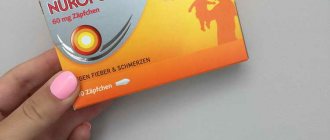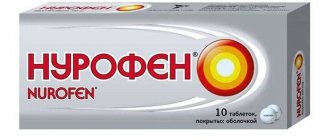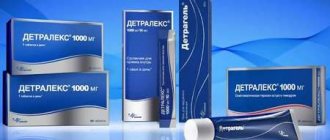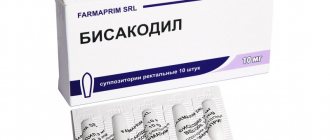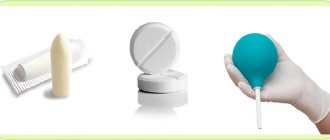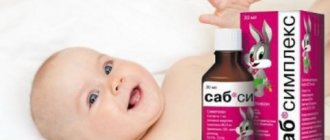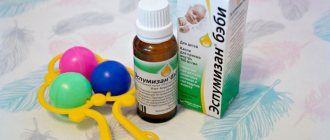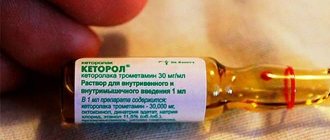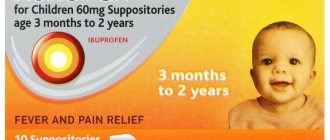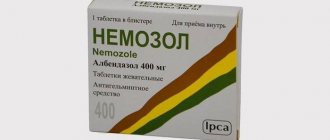The most commonly prescribed medications for children are antipyretics. Most of them are non-steroidal anti-inflammatory drugs. These remedies not only help reduce the temperature. They have anti-inflammatory and analgesic effects. Today's article will introduce you to the medicine Nurofen. The dosage for children of different ages and the method of using the medication will be described for you.
Types of the drug "Nurofen"
The manufacturer of the drug is Reckitt Benckiser. The company is located in the UK. Therefore, all packages contain a foreign name for the drug. In pharmacy chains you can find several types of medicine. They all differ in the form of release. So, what is the drug Nurofen?
- In tablets for children aged 6 years and over.
- In the form of suppositories intended for use from 3 months to 2 years.
- In syrup or suspension for children from birth to 6 years (more is possible).
- Tablets "Nurofen express NEO" (allowed from 12 years of age).
- "Nurofen" for women "Express Lady".
- Capsules with the liquid composition “Nurofen Ultracap” (acceptable for use from 12 years of age).
- "Nurofen Forte" with double dose.
- Tablets for the treatment of migraine “Multisymptom”.
- Nurofen product in the form of a gel for external use with a concentration of 5%.
What does the instructions for use say about Nurofen preparations? Not all of the medications described above can be used for children. It all depends on the age of the child and the existing symptoms. Let us consider in detail how the drug “Nurofen” (in tablets) is used for children.
How long does it take for Nurofen to reduce fever?
If a child has a high temperature, then parents want to bring it down as quickly as possible. Therefore, they are very concerned about how long it takes Nurofen to bring down the fever. And in vain. Haste is only useful when catching fleas.
Sudden changes in a child's condition can cause severe chills, convulsions, hypothermia, and in rare cases even fainting or coma. If the temperature drops very quickly, within 5-10 minutes, then it is possible that it was an overdose of Nurofen and you need to urgently call an ambulance.
The rate of temperature decrease depends on:
- release forms - syrup and suspension Nurofen acts faster than tablets and capsules, and suppositories are quite gradual, but for a long time;
- the amount of fluid in the body - the more severe the dehydration, the slower the temperature drops;
- type of infection - with bacterial fever it weakens very slowly or does not decrease at all;
- depending on the age and condition of the patient - the smaller the child and the stronger his own immune defense, the faster the changes occur.
Therefore, not a single competent doctor will tell you exactly how many minutes it will take for Nurofen to lower your temperature. According to the pharmaceutical standard of the drug, its action occurs slowly, without profuse sweating, and the onset of action should appear no later than 30 minutes. The antipyretic effect normally lasts 8 hours. But if you gave your child Nurofen for fever, more than half an hour has passed, and the fever has not begun to subside, then this is a cause for serious concern.
Description of the medicine for children
What is the composition of Nurofen? Tablets contain 200 mg of active ingredient (ibuprofen). The preparation also contains additional components: sodium cellulose, carmellose, sodium lauryl sulfate, sodium citrate, stearic acid, colloidal silicon dioxide, talc, titanium dioxide, copper, sucrose, black ink and so on.
Nurofen is produced in tablets for children, 8 pieces per pack. The average cost of such a product does not exceed 150 rubles. Each tablet is coated for ease of use.
Indications for the use of NSAIDs
When does the instructions for use recommend taking Nurofen? For children, this medicine is used both with and without a doctor’s recommendation. Parents often have the medicine in their medicine cabinet. After all, the child’s well-being can deteriorate at any moment. The following situations are considered real indications for the use of the drug:
- increased temperature of various types and causes;
- pain syndrome (dental, headache, muscle pain);
- migraine and neuralgia;
- otitis and tonsillitis, as well as other diseases of the ENT organs.
The drug is often used in combination with other medications as symptomatic therapy. The drug is prescribed for inflammatory diseases.
At what temperature should it be given to children?
According to the recommendation of the Union of Russian Pediatricians in 2002, antipyretic medications, including Nurofen (Children), are given to children according to certain rules, which take into account the dependence on the age and health status of the child.
- In the first 3 months of life, the drug is not recommended; among antipyretics, only paracetamol can be used at temperatures above 38.
- Children over 3 months: if there were no health problems before - from 39℃, if there are muscle aches and headaches - from 38.5℃;
- when the child previously had febrile convulsions - from 38℃;
- for severe diseases of the lungs, nervous system and heart - from 38.5℃.
Important information about children's medicine: contraindications for use
As you already know, the medicine “Nurofen” (in tablets) is recommended for children over 6 years of age only. For young children, the drug is prescribed in the form of a suspension. For children under three years of age, it will be preferable and more convenient to use candles. But not only age can be a reason for refusing this medicine. What other contraindications does Nurofen have?
Instructions for use of the tablet (200 mg) prohibit taking it if you have a high sensitivity to the active substance or additional components. If a child has intolerance to acetylsalicylic acid, then you should also stop using the medication. It is forbidden to use the product for children with heart failure, high blood pressure, or diseases of the optic nerve. Children's tablets are not prescribed for certain diseases of the circulatory system, hearing impairment, and severe pathologies of the vestibular apparatus. If a child has ulcerative lesions of the gastrointestinal tract or progressive bleeding in this area, then it is strictly forbidden to take this medication.
If after Nurofen the temperature is 35
We have already written about the reasons why a child may have a low temperature after a high one. The enhanced effect of antipyretic drugs is one of them.
If the temperature after taking Nurofen did not drop to 37, but immediately to 35.5 and below, then this may be due to:
- hypersensitivity to the drug;
- overdose.
In any case, if the child feels very unwell, very lethargic and sleepy, you need to call an ambulance. Call an ambulance and tell them how much medicine they gave. If it is confirmed that the maximum permissible dose has been exceeded, a team must leave. An overdose of Nurofen is dangerous; intensive measures must be taken to remove the toxin from the body.
While the ambulance is traveling, if less than an hour has passed since taking Nurofen, you need to do a gastric lavage, inducing vomiting. If an hour has already passed, give your child activated charcoal and plenty of fluids.
If it is definitely established that there was no overdose, and the baby feels normal, give him a warm drink, hold him in your arms, put on warm socks. Perhaps this is the beginning of the healing process, a loss of strength after a long fight against the virus. No need to rub it hard, warm it under three blankets or in a hot bath. Just make sure your baby is warm enough, but not too hot. And don't forget to continue monitoring the temperature. If she falls further, you still need to call an ambulance; hypothermia is not to be trifled with.
Additional information about restrictions
The instructions for use also describe other restrictions on the use of the drug Nurofen. 200 mg tablets should be taken very carefully and only after prior consultation with your doctor in the following situations:
- renal and liver failure;
- coronary disease and diabetes mellitus;
- if the child has an allergy, the correction of which is carried out with oral corticosteroids;
- diseases of the stomach and intestines of varying nature and severity.
The annotation also states that under adult supervision the medication should be given to children under 12 years of age.
"Nurofen": dosage for young children
The child is recommended to take one tablet per dose. The frequency of use of the medication should not exceed 4 times a day. The break between using the drug is 6 hours or more. The maximum daily dose for children under 12 years of age is 1200 mg of the active substance (ibuprofen).
The duration of pain relief therapy should not exceed 5 days. If the medication is used to relieve fever, it should not be taken for more than 3 days in a row. If after the specified period all symptoms persist, then you need to stop treatment and consult a doctor to adjust the therapy.
How does the drug work?
You already know a lot about Nurofen tablets: what they help with, how they are taken and when they are prohibited. Many parents are interested in how the medicine works. After all, they have to give medicine to their own children. How and for how long does the tablet work?
"Nurofen" refers to anti-inflammatory non-steroidal drugs that have an analgesic and antipyretic effect. After oral administration, the tablet quickly dissolves and is absorbed from the gastrointestinal tract. The medication inhibits the synthesis of prostaglandins, it blocks inflammation. This reduces the sensitivity of the receptors: the pain goes away. Also within an hour, an antipyretic effect occurs. The effect of the drug is quite long. The instructions indicate that the medication works from 4 to 8 hours. Usually a repeat dose of the drug is required no less than 6 hours later. In some cases, a single dose of medication is sufficient.
What to do if Nurofen does not reduce the temperature?
Nurofen, like all analogues of Ibuprofen, is the drug of second choice. It is stronger than paracetamol. If you started with it, and this medicine does not bring down the temperature above 39, then the situation is quite serious. Perhaps it:
- severe dehydration, and it’s time for the child to drip saline;
- bacterial infection, because Nurofen is good at reducing the temperature in children with fever caused by a virus, but it is not very effective against bacterial toxins;
- white fever, in which the antipyretic does not work due to spasm of the superficial vessels; in this state, the body is hot, and the hands and feet are cold and pale.
There are generally accepted medical standards. If, after taking the drug in the form of a suspension, the temperature does not drop above 39 within 30 minutes, you need to call an ambulance or a pediatrician if you are sure that he will arrive quickly.
If you take Nurofen tablets or capsules or use suppositories, you can add another 10-15 minutes to this time. If it doesn’t go astray, call an ambulance.
If your child has a temperature below 39, his arms and legs are pink, he feels more or less normal, but the temperature still does not decrease after taking it, check what dosage of Nurofen you gave. Perhaps it was an ineffective dose without taking into account the child's weight. Call the doctor or an ambulance and ask how much Nurofen should be given for the child’s weight.
But a second dose is permissible only 8 hours after the previous one. And paracetamol can be taken an hour after Nurofen, but 6 hours after the last time you took the same medicine.
And don’t forget to give your child as much water as possible. Dehydration is the most common reason that an antipyretic does not bring down the temperature.
Side effects
You already know what Nurofen tablets help with. The medicine has an effective analgesic and antipyretic effect. In addition, the composition relieves inflammation and improves the general condition of the patient. But the drug can also cause side effects. That is why before use you need to carefully study the instructions and follow all of its points. The annotation lists the following side effects:
- disturbances in the functioning of the digestive system (nausea, flatulence, vomiting, diarrhea, abdominal pain);
- allergic reactions (swelling, urticaria, itching, rash, increased bronchial cough);
- headache, dizziness, confusion;
- impaired renal function and malfunction of the hematopoietic organs.
If any of these symptoms appear, you should consult a doctor. If the complication is mild, no action or medical measures are required. It is enough just to cancel the treatment. If severe adverse reactions occur, the patient’s stomach is washed and sorbents and cleansing medications are prescribed. Sometimes hospitalization is required.
Children over 12 years of age can be given other forms of Nurofen.
Upon reaching this age, the medicine can be given in another form. Children over 12 years of age are advised to use medications intended for adults. The dosage of medications will also be increased. Nurofen Express preparations (capsules), Nurofen tablets are taken 200 mg up to 4 times a day. The medicine “Multisymptom” is recommended 1 pill up to 3 times a day.
Nurofen Forte tablets contain a double dose of the active substance. They contain 400 mg of ibuprofen. This drug is prescribed to children over 12 years of age, 1 tablet no more than 4 times a day. This medication is usually used when other forms of the drug are ineffective.
"Nurofen" (tablets): reviews of parents about the medicine
Parents of children say that the drug described in the article is one of the most popular. The drug has long been used in pediatrics to treat bacterial and viral diseases accompanied by fever and pain. It is very convenient for children to use the medicine "Nurofen". After all, it acts for 6-8 hours. You can give the medicine to your child before bedtime and get proper rest. After all, you won’t have to worry about the temperature rising until the morning.
Many mothers and fathers use the drug "Nurofen" for children (4 years old). The medication is not prescribed for this age in tablet form. But if a child weighs more than 20 kilograms and is able to swallow the medicine without first crushing it, then it is quite acceptable to use this form. This information is indirectly communicated to the consumer by the instructions for use.
What medications can be combined with and how effective?
Most often, Nurofen has to be combined with antibiotics. Ibuprofen has a better effect on bacterial fever than paracetamol, it alleviates the child’s condition, and antibiotics are needed to treat bacterial infections, that is, to get rid of the immediate cause of the disease.
Not all antibiotics combine equally well with Nurofen, especially when it comes to a sick child. The purpose, dose, and rules of administration should be prescribed in detail by the pediatrician. Antibiotics are usually taken half an hour before meals. Eating does not affect the effectiveness of Nurofen. But if you combine it with antibiotics, it is better not to drink it all at once, but to take Nurofen syrup after meals.
If a child has chronic diseases and takes any medications, before taking Nurofen, be sure to check with the doctor to see how compatible these medications are and whether they can be combined.
Nurofen:
- enhances the anticoagulant effect of anticoagulants;
- reduces the effectiveness of diuretics and blood pressure-lowering drugs;
- increases the side effects of steroid drugs;
- when taking Nurofen simultaneously with lithium, methotrexate, phenytoin, digoxin, the concentration of these drugs in the blood increases.
No-shpa and Nurofen
No-shpa can be given to children from 6 years of age. It helps with spasms. For fever, it is used if the child has white fever, that is, spasms of peripheral vessels. Due to circulatory disorders in this condition, the child’s temperature is not reduced by antipyretics.
The dosage for combined use of an antispasmodic and an antipyretic should be prescribed by a pediatrician. First, they give the minimum dose of no-shpa, then after 5 minutes Nurofen syrup.
Drug substitutes: structural analogues and other drugs with the same effect
There are many substitutes for Nurofen (tablets). Analogs have identical active ingredients. Pay attention to the ibuprofen content. After all, it may differ. Therefore, the method of application and dosage will be different. The most popular analogues include Advil, Ibuprofen, Brufen, Burana, Mig, Dolgit and others.
You can also replace the medicine with many other analgesics with an antipyretic effect: Aspirin, Citramon, Paracetamol, Panadol, Analgin and so on. All analogues of the drug must be selected by a doctor after taking into account all individual characteristics. Please note that medications based on acetylsalicylic acid can only be given to children over 16 years of age. They are in no way suitable for treating younger patients.
Is it possible to alternate Nurofen and with what?
Among other antipyretics, Nurofen for children is recommended to be alternated only with paracetamol. They should not be given at the same time due to the increased likelihood of side effects.
If there is such a need to combine the anti-inflammatory and analgesic effect of ibuprofen with the antipyretic effect of paracetamol, there is Ibuklin for children, which can be given from 3 years of age with a weight of more than 13 kg.
It is believed that the antipyretic properties of ibuprofen are stronger than paracetamol. But in some children, paracetamol lowers the temperature better, since each organism has its own characteristics. The search for an effective antipyretic for a child is often a matter of trial and error.
But significant mistakes along the way can be costly for your health. Therefore, antipyretics should be treated as a necessary evil and taken only when truly necessary.
Nurofen and Paracetamol
Nurofen, like all ibuprofen-based drugs, is well compatible with paracetamol-based drugs, such as Cefekon, Panadol. But the first choice antipyretic should be paracetamol, because it is safer than ibuprofen and has fewer side effects. Nurofen may be the drug of first choice if fever is combined with inflammation and pain, for example with pharyngitis or otitis media.
If the child’s temperature from 39 does not drop below 38.8 with paracetamol within an hour, but does not increase further, and the baby feels normal, then you can try giving Nurofen. But after taking paracetamol, at least 60 minutes should pass. Single and daily dosages of paracetamol and ibuprofen are calculated separately.
In most cases, it does not make sense to give paracetamol after Nurofen, since it is a weaker antipyretic. If the temperature is not brought down by Nurofen in sufficient dosage, it may be severe dehydration or a bacterial infection, and in this case you should not alternate medications, but call a doctor or an ambulance.
Nurofen and Tsefekon
If you have Tsefekon and Nurofen syrups in the house, then you need to start with Tsefekon at high temperatures. If it doesn’t knock you down, you can try Nurofen after an hour. If within 30 minutes the temperature does not drop below at least 38.7, you need the help of professional doctors.
If one medicine is in syrup and the second in suppositories, then they can also be alternated for a child under 2 years of age. During the day, the baby is usually given a suspension at a temperature of 38.5 to 39, and at night a suppository is placed, which lowers the temperature gradually and slowly.
Panadol and Nurofen
If Panadol Baby syrup does not help much, you can alternate it with Nurofen. The drugs are given at intervals of 3 hours. For each, the dosage is observed. But you shouldn’t do this unless absolutely necessary and for more than 1-2 days.
Doctors' recommendations
Doctors give only positive reviews about the drug Nurofen. Pediatricians say that this drug has long been one of the most popular, accessible and effective. The medicine almost never has a negative effect. The most common side effect from it is allergies.
Doctors also report that the drug is often taken independently. If a child suddenly has a fever or a headache, then this is quite justified. But if the symptom reappears, you should consult a doctor. After all, the drug is essentially symptomatic. It relieves the symptoms of the disease, but does not eliminate its cause. Only an experienced doctor can determine what exactly is happening to the child. After the examination, the doctor will prescribe medications that can be combined with Nurofen.
The instructions indicate that the tablets are not recommended for use simultaneously with aspirin or other non-steroidal anti-inflammatory drugs. The medication is not compatible with some antibiotics. Diuretic compounds and sorbents reduce the effectiveness of antipyretic and analgesic agents. Pediatricians do not recommend increasing the dose of the drug on their own or giving children the drug in tablets. This type of medication involves taking it whole (without preliminary crushing). Young children are not always able to swallow a pill.
